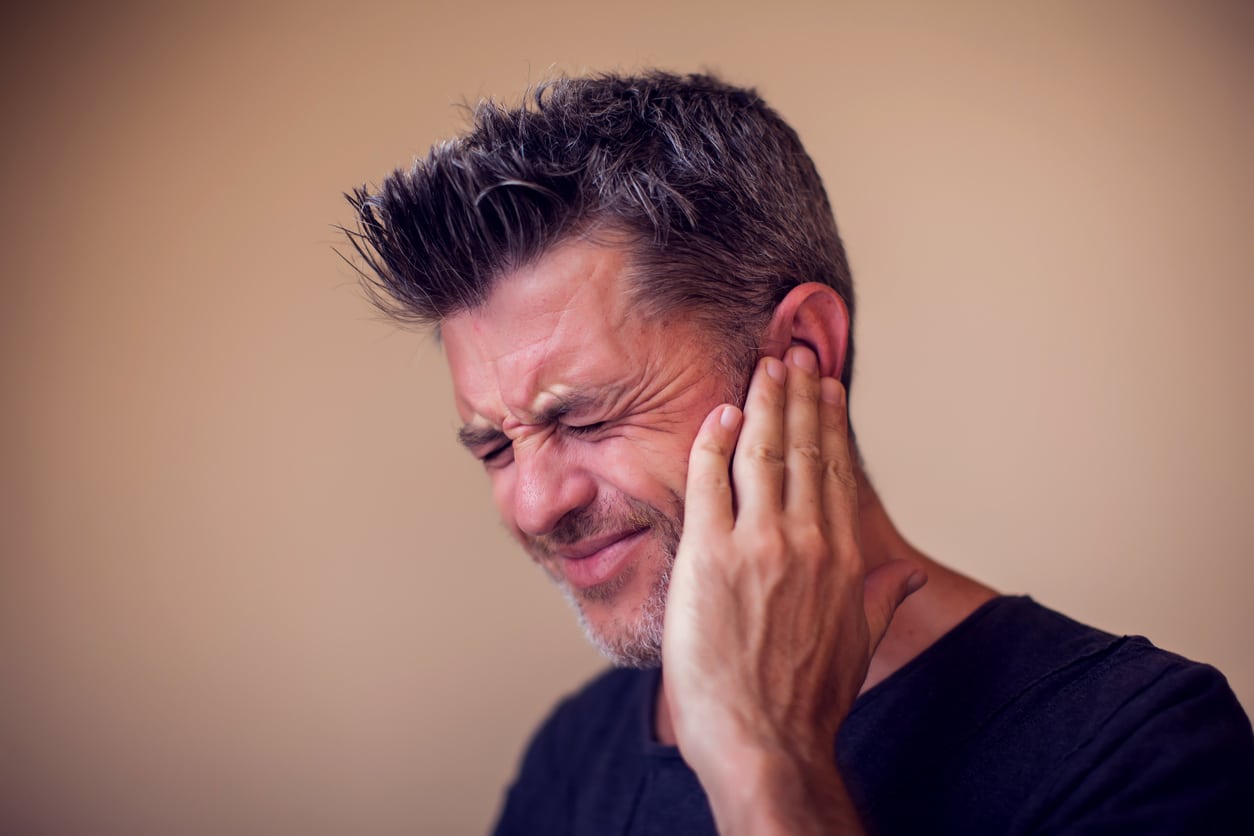Ear infections are often thought of as a childhood issue, especially in kids between six months and two years old. Many of us might remember staying home from school with that familiar earache. However, ear infections aren’t just for kids—they can be a recurring problem for adults. Let’s dive into what causes ear infections, why adults may experience them and some simple steps you can take to reduce your risk.
What Is an Ear Infection?

Ear infections, also called acute otitis media, arise when a virus or bacteria infects the space behind the eardrum, leading to symptoms including but not limited to:
- Ear pain
- Muffled hearing
- Feeling that the ear is blocked
- Pressure in the ear
- Poor appetite
- Fluid drainage from the ear
- Fever
With childhood ear infections, parents may need to pay attention to behavior or visual signs like unusual fussiness or pulling on the earlobe, but adults may have a better vocabulary to define the specific symptoms they’re experiencing.
Why Do Adults Get Ear Infections?
For the most part, children are more susceptible to ear infections because their Eustachian tubes (the canals responsible for balancing pressure and draining fluid) are smaller and easily blocked. Because adults have larger Eustachian tubes, their ear infections tend to have an underlying risk factor, including but not limited to:
- Allergies. Severe or untreated allergies can lead to inflammation and mucus buildup in the sinus cavity and Eustachian tube. When the Eustachian tube is blocked, you are more likely to develop ear infections.
- Upper respiratory infection. An upper respiratory infection, like the cold or flu, inflames the sinuses, throat and ears, potentially leading to ear infections, among other symptoms like a running nose or cough.
- Smoking. Smoking or other factors contributing to poor air quality can lead to inflammation in the Eustachian tube and ear infections.
How Can I Minimize My Ear Infection Risk?
The best way to minimize your ear infection risk is to manage the underlying cause. For example, if pollen allergies cause your symptoms, schedule your Glenmere Park days outside of peak pollen hours. Viral infections, on the other hand, are best prevented through a healthy diet and frequent handwashing.
Whatever the underlying cause of your ear infections, our ENT specialist can help you manage your symptoms—whether through antibiotics, decongestants, pain medication or other treatments. Contact Alpine Ear Nose & Throat PC today to schedule an appointment with one of our trusted specialists.